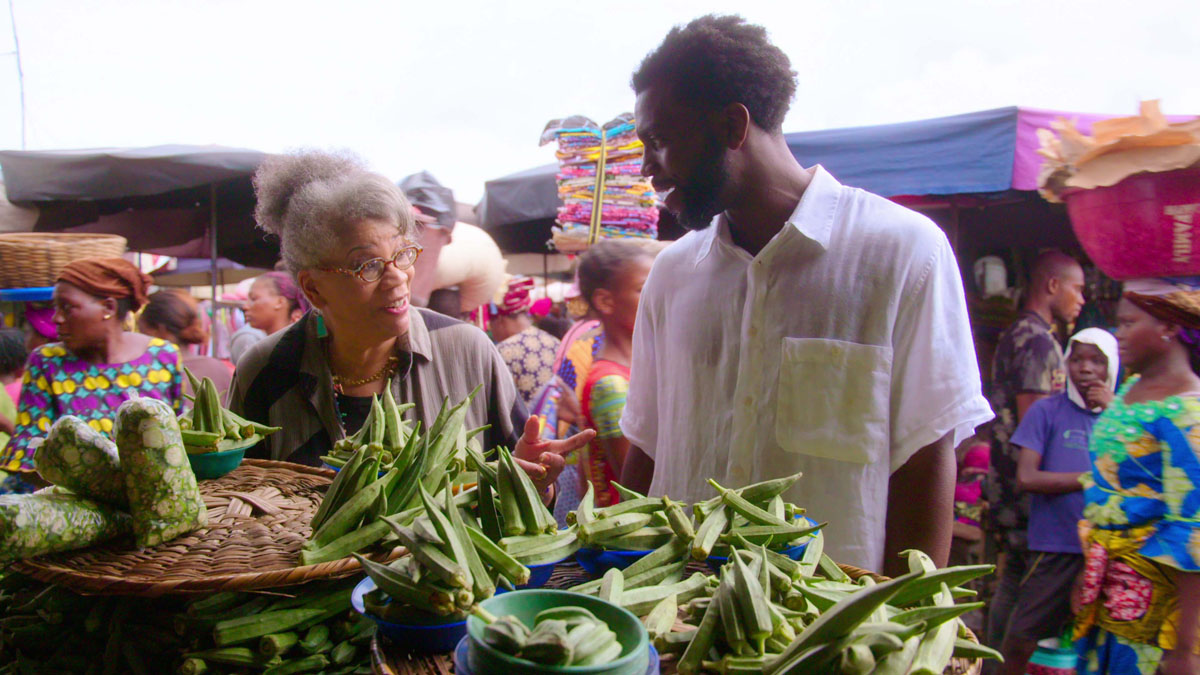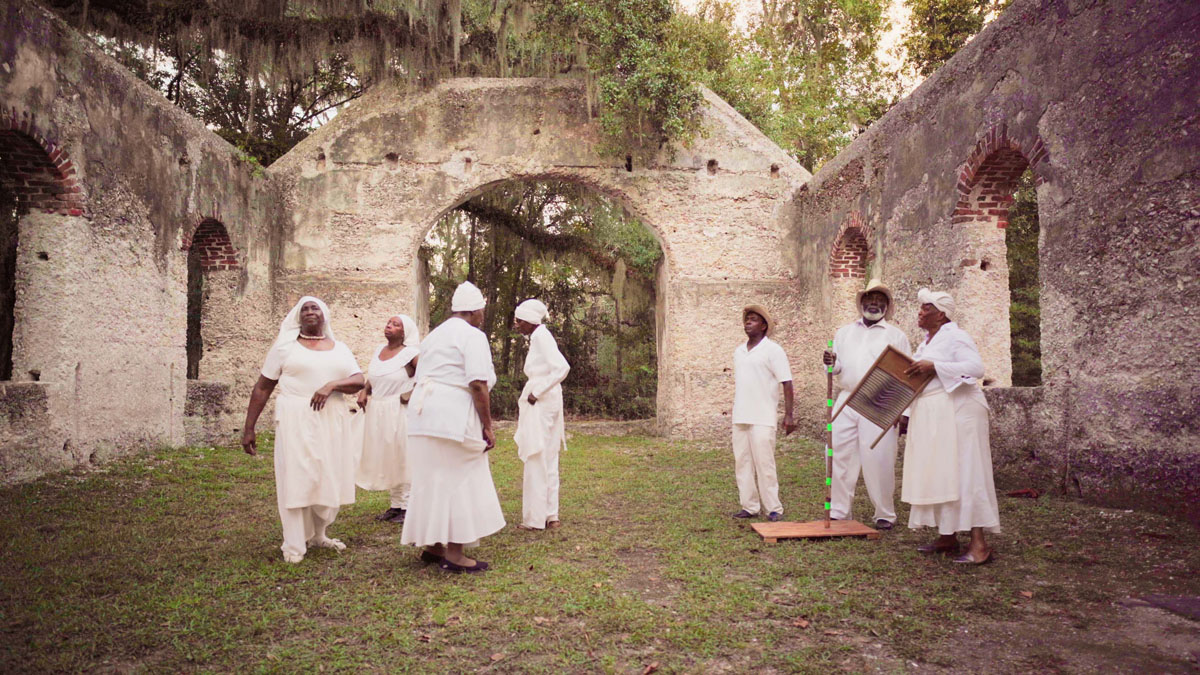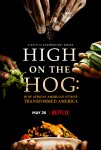
Last weekend I engrossed myself for five plus hours in a wonderful docuseries on Netflix. High on the Hog is based on the 2011 book by Jessica B. Harris. It follows foodie and Whetstone Magazine founder, Stephen Satterfield, through the history of the African American influence on American cuisine. Stephen begins his journey in Benin, West Africa before tracing the many African food culture journeys through the United States. In an interview with The Today Show, Stephen says that he did the docuseries to better understand the world around him. Stephen goes on to explain how the marriage of African vegetables and legumes and European and Indigenous cuisine came about. Below is more about High on the Hog from NBC News:
“We have, for many years, been overdue for a serious look at the contributions that Black folks have had to food culture in the U.S.,” Stephen Satterfield, host of the show, told TODAY’s Sheinelle Jones.
“Ultimately, what we’re talking about is a chronicle of our identity,” he added. “So often, in our country, the role and impact of Black people has been erased from the story. And we know that these stories have immense power.”
“I love food,” he said. “It really brought me to a place of deeper curiosity. I really began to see it as a way to better understand the world around me. And really the story of human beings.”
One clip from the show includes an interview with a woman who comes from “one of the great Black catering families of Philadelphia,” and whose family helped popularize mac and cheese in the U.S., for example.
“High on the Hog” is based on a 2011 book of the same name by Dr. Jessica B. Harris, an award-winning food historian.
Harris told TODAY she was immediately on board with the idea for the show.
“We’ve set the table and often cooked the meal and harvested the food,” she said. “So at this point, it looks as though we may be getting a place at the table, and we certainly deserve it. And it’s been a long time coming.”
“They brought rice. The yams. Peas. Beans. Black-eyed peas. Fava beans. All those things that now join us are things that came with us,” Harris tells Satterfield in one scene. “This is how our food, and their food, conjoin.”
I wanted to Netflix and Chill sans a guy last weekend. When I saw that High on the Hog featured a lot of Black people and that food was involved I was sold. Watching that show was the best five hours of the last year of my life. Tracing the African American food journey through Benin then South Carolina, Pennsylvania, Virginia and Texas is one of my favorite pastimes. I have been internet friends with Michael Twitty, author of The Cooking Gene, for years after discovering him when doing family research. Michael’s love of history as it pertains to food and how Africa influenced the food in America has had me on a near decade of researching. In most cases I was reading the stories but seeing them visually made it more real.
It is sad that African American’s prolific influence on American society is always erased. So I am glad that this docuseries was made. Similar to author Jessica Harris, I began to make the correlation with U.S. food to the dishes in parts of West Africa while I was traveling. The first time I made Nigerian jollof rice I realized that it tasted like the base of jmbalaya without the seafood.
My only complaint about the show was that Black women chefs and cooks were not featured. Yes women were interviewed but they were interviewed in conjunction with a story about family members, and not actually cooking a meal and explaining where the food came from. And since all of the men in the show acknowledge that they were taught to cook by their mothers or the women in the neighborhood, women should have been showcased in at least one of the episodes. I hope that Netflix continues to produce shows like High on the Hog. As a history junkie, it’ll definitely encourage me to keep my Netflix account.
Photos credit: Netflix


















Wow, cannot wait to watch this! Long overdue.
Thank you for the review! I was interested in this series for the food history but the title made it sound meat-focused (not that exciting for a vegetarian). I’ll need more information about the woman whose family popularized mac & cheese so I can send her flowers, maybe erect a statue.
High on the Hog is an African-America colloquialism that dates back to American slavery. Enslaved people on plantations were give the lesser cuts of pork for their portion – trotters, offal and the like; portions that are found lower on the animal. Slave holders and their families kept the better cuts – those higher on the animal – for themselves. So when black people were able to move up in status (either in antebellum or post-Civil War), the joke became, “look at you, eating high on the hog.” It can be used fondly as a compliment or with derision depending on the person and circumstance.
@NCDancer
Thanks for the quick history lesson! That’s so interesting and I learned something new today
I am grateful anytime I am educated! Thank u NCDancer
Ooooooh! As a foodie who also loves history/culture I’m going to have to add this to my watch list!
This show is a must watch. My husband and I experienced so many emotions.
Thanks for covering this, I am very excited to watch this now.
My kids found it hard to believe that I never had mac and cheese, or even heard of it, until going to a friend’s house in high school (in the 80s), and that was just the boxed stuff. Homemade Mac and cheese, which I had in college, was a revelation.
But I grew up in highly segregated Chicago, in a white neighborhood, which was a more meat and potatoes kinda place, I guess. And the Italian family next door only had red “gravy” on the pasta the grandmother made every day. We had our own ethnic traditions and foods but they were European. It wasn’t until college and beyond that I was able to expand my culinary horizons and palate.
I too am a history and food junkie so this is right up my alley. Thank you for covering. The African American culinary contribution is so interesting long over looked. Being given the scraps and making something delicious is truly amazing. Thanks again.
Watched the first episode. Really emotional stuff.
I am very excited to watch this! My problem is that I tend to watch these types of shows while I’m on the bike and then I’m just hungry, lol. But in general I find the Netflix food docuseries to be very well done (Street Food is an amazing series, they have a series focused on Asia and a series focused on Latin America) so I definitely want to check this one out.
Oh, thank you for the reminder, I saw the trailer for this and knew immediately it was going to be amazing. I love food documentaries (and food. Mainly food).
I watched this show and learned so much about the African and African American influence on American cuisine. Highly recommend you watch it. And just want to add that George and Martha Washington ain’t the saints they’re portrayed to be.
I watched the first two episodes and just found it to be flat. I don’t know if the pacing was off or what, but it just didn’t sustain my attention, which is a shame because it’s such an important subject. The Cooking Gene was amazing and I’m jealous that you’re internet friends with Twitty, Oya!
I’m midway through High on the Hog (the book) right now and it’s a decent read.
We bonded over being Black Jews. lol. He is super sweet. But we haven’t spoken much in years except the odd tweet and reply.
Watched this last weekend and loved it! So glad you covered it! Never realized how much of the food we Southerners eat was from Africa. It was very interesting! Sorry I missed the BBQ church people here in Texas as that sounded wonderful.
LOVE Jessica Harris! She is an amazing food historian and you also need to get her book of the same name that this show was based on, as well as her book about rum drinks. Jessica is also super nice — is a rarity in the food world.
And thank you for reminding me to watch this. When I saw the title and subject I was like, I hope this involves Jessica.
The Peppers, Cracklings, and Knots of Wool Cookbook by Diane M. Spivey is a great history and cookbook in one. All about the Global migration of African cuisine. If you enjoyed this show I would definitely recommend this book
This looks very interesting. Thanks for covering it!
I heard about this yesterday on NPR and can’t wait to watch it! I’ll cook something from my Vertamae Grosvenor low country cookbook while I do.
I’ve been watching with my family – particularly wanting to introduce my son to this as part of our Black American culture and history homeschooling journey) and telling him how it reminds me of traveling to visit family with my grandmother in the South, and many years of family gatherings with folks bringing gumbo and string beans and hot water cornbread and peach cobbler and so many other amazing dishes.
One of the things I love about the series is how present the host is while interviewing people. It’s beautiful and very inviting.
He is wonderful! He was such a thoughtful interviewer-l want to check out his podcast. It was a great show. My 12 year old (also homeschooling) watched part of it with me-I think I’m going to rewatch so he can catch all of it.
Definitely going to watch this, I haven’t been watching Netflix lately so I hadn’t seen it until you covered it, Oya. Thanks for the recommendation!
Ooh. Thanks for covering this. Adding to my queue.
I will be watching this!
This series is really good. I hope they have a second season to explore the food culture more. The food looked delicious on the show and learned so much. I really liked the host as well. Lots of great stories and chefs profiled.
This series is great. I did kind of feel like it may have been impacted by covid – it felt a little prematurely ended. Like he may have planned to go more places and have a full 8 episode run but covid shut it down. If so, I hope they come back for another “season” ( I know it’s a limited edition series)
Thanks…going to watch this!
I have to add that the best museum cafeteria meal I’ve ever had was at the National Museum of African American History and Culture in DC. Stuffed trout with chestnuts and brown butter, greens and cornbread. The
The menu pays thoughtful homage to AA cuisine. I don’t know how but it fed my heart…which was hurting after the three lower floors of the museum. The cafeteria was our break before going on up to the rest. What a place…
Hands down one of the best new cooking/food programs to hit streaming in a minute! So interesting and moving. Ill definitely be rewatching all the episodes
I JUST canceled my Netflix subscription. Thought I’d take a break for a while. This will definitely get me back, though!! Thanks for reviewing it!
I come here mainly for the celebrity gossip BUT I AM LOVING THESE PROGRAM TIPS!!!
Oooh, thank you for the review! Long story short, after a psychiatrist got me hooked on benzos (two decades ago now, I’m not balanced on a ledge), cooking shows (and cooking) became a safe form of xanax, for me. I am getting Marcus Samuelsson vibes, and I am all in. I love when a chef pours their heart and their life story onto a plate, cooking really is the easiest expression of love.